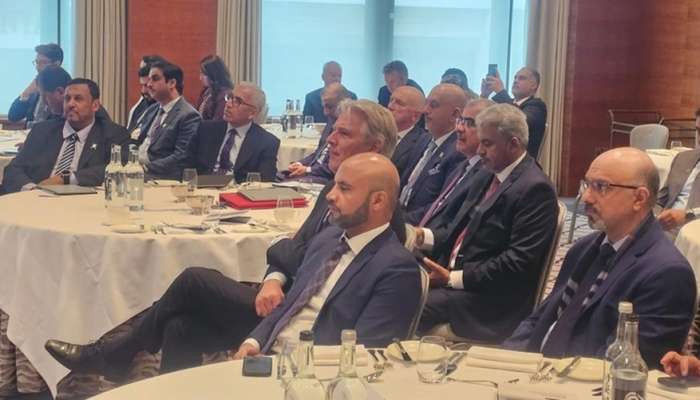
London: A delegation from the Public Authority for Special Economic Zones and Free Zones (Opaz), headed by Sheikh Dr. Ali bin Masoud Al Sunaidy, Chairman of the Authority, held a series of meetings in the British capital, London. The delegation included officials from various economic zones and free zones.
During the meetings, investment opportunities in various industrial clusters were presented, especially in the pharmaceutical, plastic, food, and green industries, as well as in mining industries and real estate development in economic zones.
The visit also included meetings with investors to explore modern technologies related to renewable energy industries, as well as re-export activities, storage, and supply chains.
The Authority organised a specialised workshop at the British-Omani Society headquarters, where the incentives and competitive advantages provided by the special economic zones, free zones, and industrial cities in the Sultanate of Oman were discussed.
In the same context, the delegation met with experts and specialists in real estate development within the economic zones and housing solutions for workers in these areas.
Meetings were also held with officials from funding bodies related to supply chains for renewable energy industries, discussing ways to provide competitive financing for major strategic factories.
Additionally, the delegation participated in the Logistics Conference held in London in partnership with the Embassy of the Sultanate of Oman, the Ministry of Transport, Communications, and Information Technology, and Asyad Group. Emphasis was laid on the opportunities available in the logistics sector through the advanced infrastructure provided by the free zones and their adjacent ports.
At the conclusion of the visit, Sheikh Dr. Ali bin Masoud Al Sunaidy confirmed that the bilateral meetings with the British business community reflected the growing interest in investment opportunities in the Sultanate of Oman.
He added that the Authority aimed, through this visit, to build strategic partnerships that enhance the competitiveness of Oman's economic zones, attract future industries, reduce the import of production inputs for large factories, and support the priorities of economic diversification, particularly in the industrial clusters that have been identified.